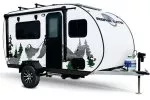Winter Camping Clothing
The successful winter camping trip strongly depends on your clothing.
More precisely, how well it can protect your body from the loss of internal heat as well as from “invading” external cold temperatures, wind, snow and moisture.
Below we provide the checklist of necessary woolen and description of several layers of clothing for winter adventure.
Woolen (Must Packs Checklist)
a. Jackets
b. Blankets
c. Gloves
d. Mittens
e. Waterproof overmitts
f. Hats
g. Mufflers
h. Balaclavas or wind-breakers
i. Goggles
j. Facemasks
k. Ear muffs and hair bands
l. Socks
m. Gaiters
Layers
- Base layer - Underwear
Take 3 extra pairs of long underwear apart from packing one per day of camping. Watson’s have a variety of thermal underwear options that are double layered. Men could look at WoolX and Under Armour for good options of insulated underwear. Minus 33 is another good option available. If the duration is beyond a week, make sure you carry 5 extra pairs instead of 3. It is very difficult to wash and dry them. Also, snow and cold could dampen the clothing unusually fast. Keep the dry underwear in sealed polythenes to ward off moisture. This layer will also constitute of dry woolen socks that reach knee length. - Mid layer – Normal wear
This layer should be comfortable and stretchy so as to ease movements in the further external layers. You could either choose a tee shirt and knee length pants or cargos. Jeans, although very comfortable, should be avoided because they tend to hold moisture a lot longer than other clothing and dries slower. Allocate 2 pairs of clothing for a day. One for the daily wear on the travel and one for sleeping. The sleeping pair again should be packed in polythenes to ward off moisture and dampening. Here you could rely on any well-known brands like Twik and Ragwear for your mid layer choices.
Here "Winter-Trekker" shares his experience about clothing.....
You will also find review of Empire Canvas Works gauntlet mitts...
- Third layer – Woolens
This is the thickest layer with the aim of protecting you from the harsh cold. Wear a jacket, wind-breaker and ear muffs on a windy day. Canada Goose jackets are long, comfortable and come with the hoods that will cover your heads as well. Use goggles if it is snowing. A stole covering your neck will keep the cold from getting onto your breathing. Cover your hands with gloves. This will keep frostbites and temporary immobility from cold at bay. Open them only when you require to use your hands to do some detailed task. - External layer – Moisture warders
The final layer will keep the snow/ cold from getting into the inner layers of clothing. A rain coat/jacket will cover your body. A hat will cover the windbreakers or balaclavas. Make sure the ear muffs stay dry. Use a hair dryer to dry them in case of emergencies. The waterproof overmitts go on the gloves. Boots that reach knee length, with gaiters preferably, will keep your legs dry and warm and will also keep away frostbites. Women can check out the Carolina boots and generally Ariatt, Carhatt and Timberland have seen good reviews by campers worldwide. Make sure you wear dry socks and change them in case they get wet, immediately to keep temporary immobility at bay. Ask for ski socks and they are more compatible with cold weather than the others. Get a pair of goggles that will ward off the moisture (which may bar vision) for the trip. Use ski or snowboarding goggles for your trip. Gordini is highly rated amongst the ski goggles that keep water away.
...and here the presentation of winter camping boots!
Finally, carry extra towels, a hair dryer to dry wet clothing items that are of immediate need and some large polythene zip lock bags to keep the moisture in or out of the clothes. This is not an exhaustive checklist for packing your winter camp clothing. Take your personal requirements into consideration while packing.
.
About Us / Privacy Policy / Resources
Go to: Pop-up Travel Trailers and RVs
or to: Best Winter Travel Trailers


